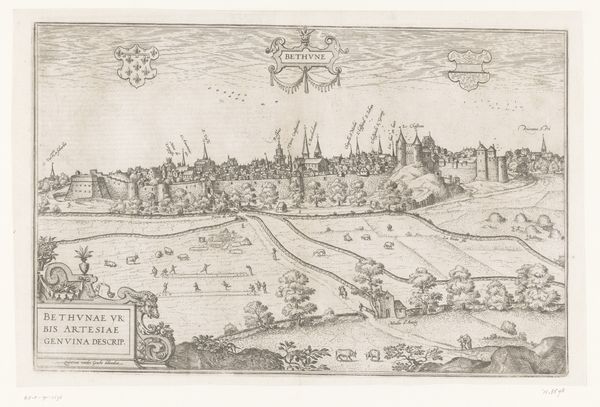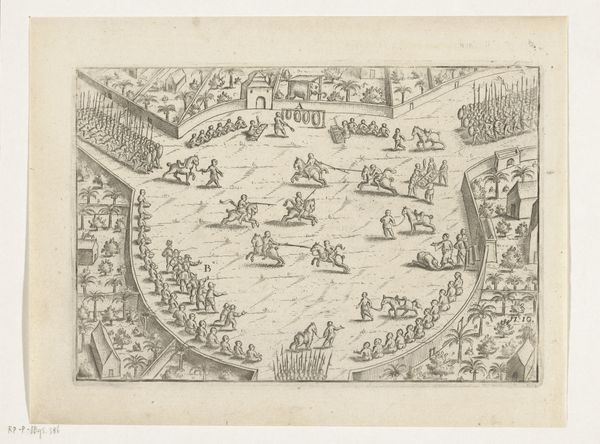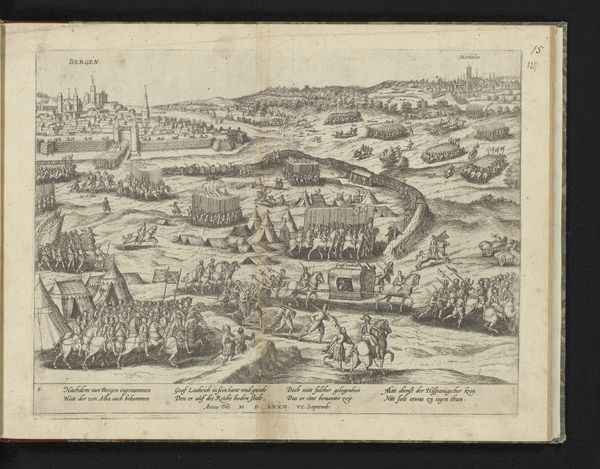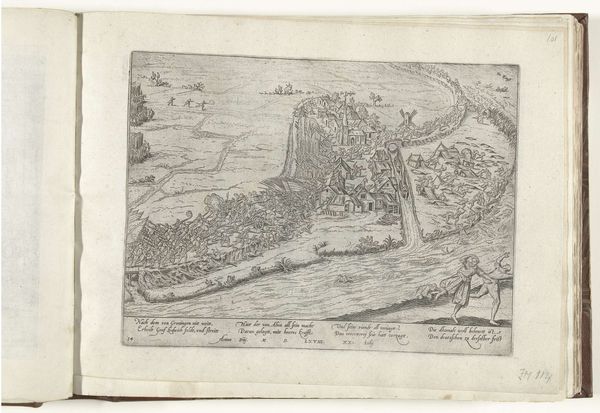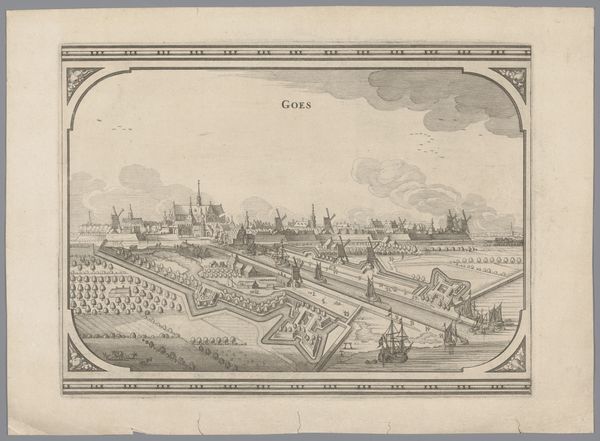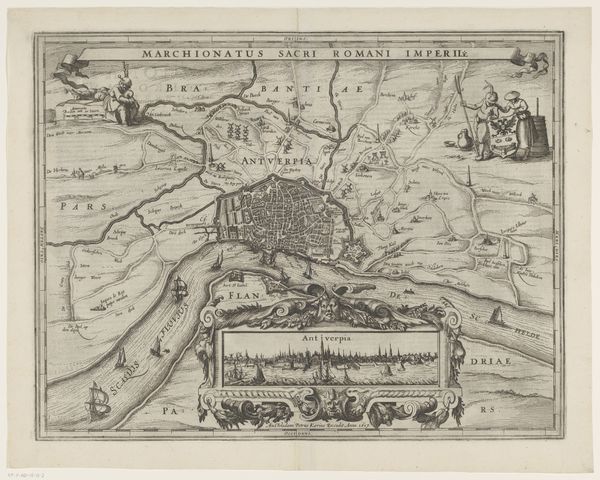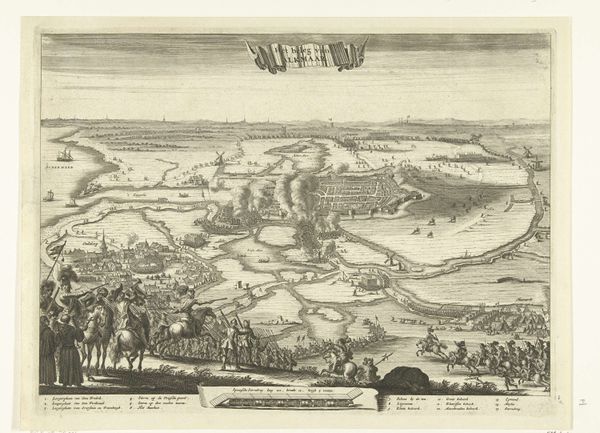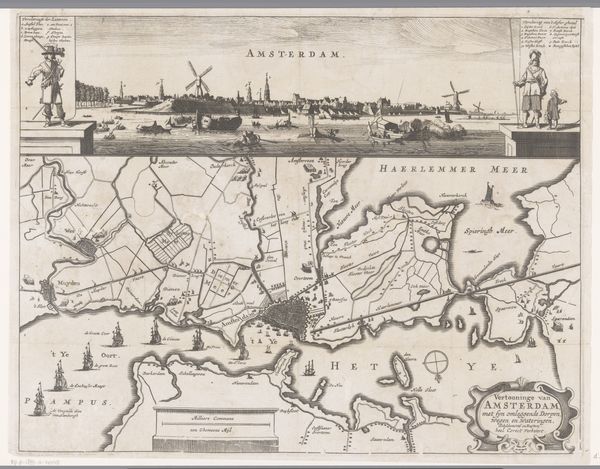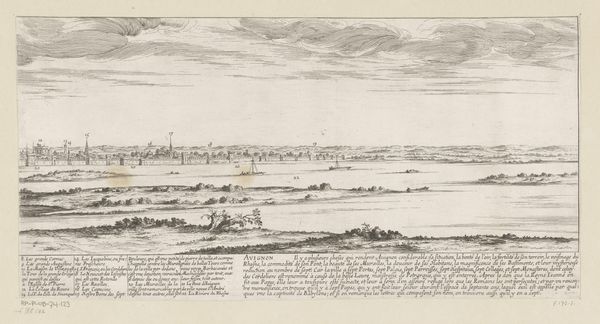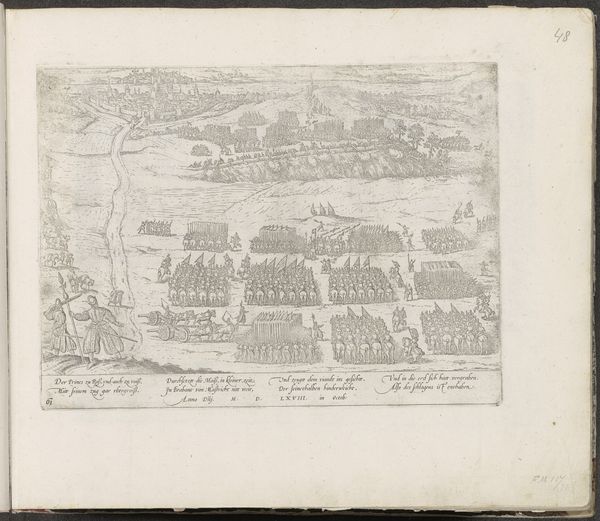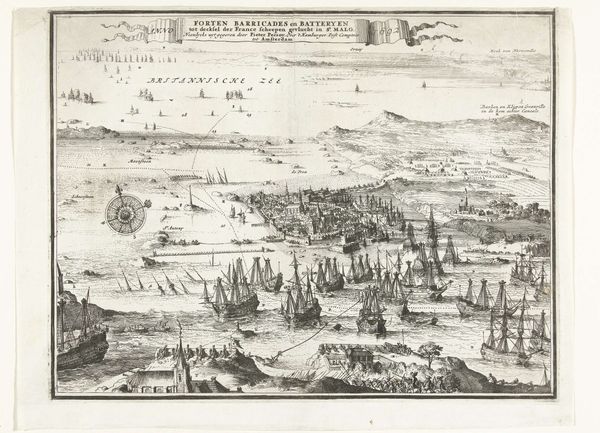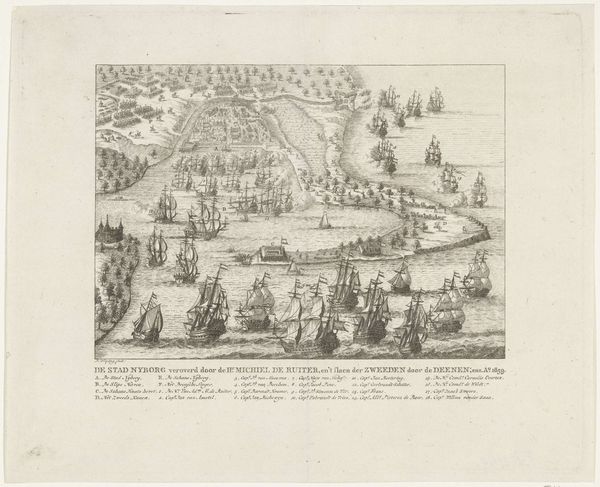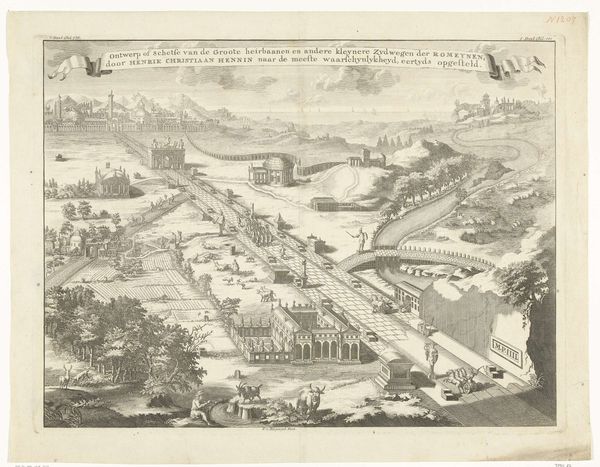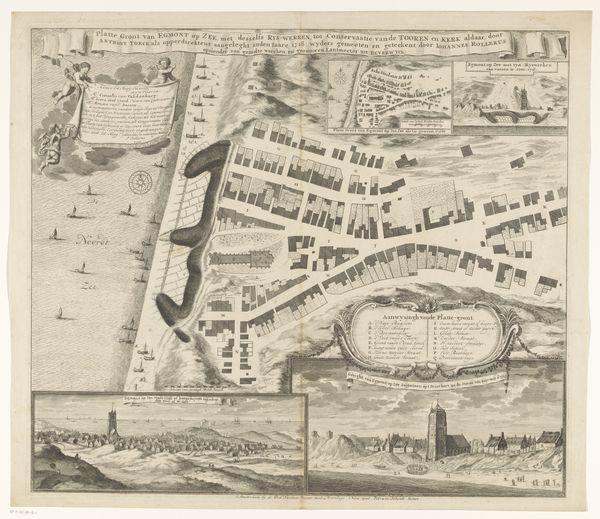
print, engraving
#
dutch-golden-age
# print
#
pen sketch
#
old engraving style
#
landscape
#
cityscape
#
engraving
Dimensions: height 148 mm, width 231 mm
Copyright: Rijks Museum: Open Domain
Curator: This engraving, simply titled "Gezicht op Brouwershaven," offers a glimpse into the Dutch Golden Age after 1572. Its creator remains anonymous, adding another layer to the historical context. Editor: The detail is quite impressive for an engraving. There’s a stark contrast between the sky and land achieved through varied line work—a sort of ordered chaos, isn’t it? Curator: The "chaos," as you call it, reflects the socio-political atmosphere of the time. Think about the Eighty Years’ War—this cityscape emerges amidst a period of intense upheaval and conflict in the Low Countries. How might the citizens represented here grapple with their identity amidst such instability? Editor: I see your point about the potential societal context, but I’m drawn to the use of perspective. Note how the artist leads our eye towards the horizon. The repeated verticals draw attention to architectural structures. Is there symbolism there beyond just showing a city view? Curator: Absolutely. Cityscapes, especially during this era, served as symbolic representations of civic pride and economic power. Brouwershaven, a port city, played a crucial role in maritime trade. Consider how access to resources influenced societal hierarchies of the time. How did its location shape the daily lives of women and people of color? Editor: I admit my formalism perhaps makes me less adept at reading such considerations in artwork. Yet the landscape's execution displays skill with how light and shadow interact, suggesting depth and volume with minimalist strokes. Even in its simplicity, the work evokes atmosphere and a certain grounded, timeless quality. Curator: And that “grounded, timeless quality” reflects the resilience of communities facing external pressures, wouldn't you say? Even now the work acts as a portal to imagining how individuals negotiated their realities. Art then, not just pretty strokes but a document. Editor: Yes, perhaps there’s more than simply line, form and balance. Looking more deeply—you've expanded my initial reading, to consider these external socio-historical contexts. I find value in that. Curator: As do I, finding value in your discerning reading of the artistic decisions and the unique ways such features allow insight into this port city in the Dutch Golden Age.
Comments
No comments
Be the first to comment and join the conversation on the ultimate creative platform.
